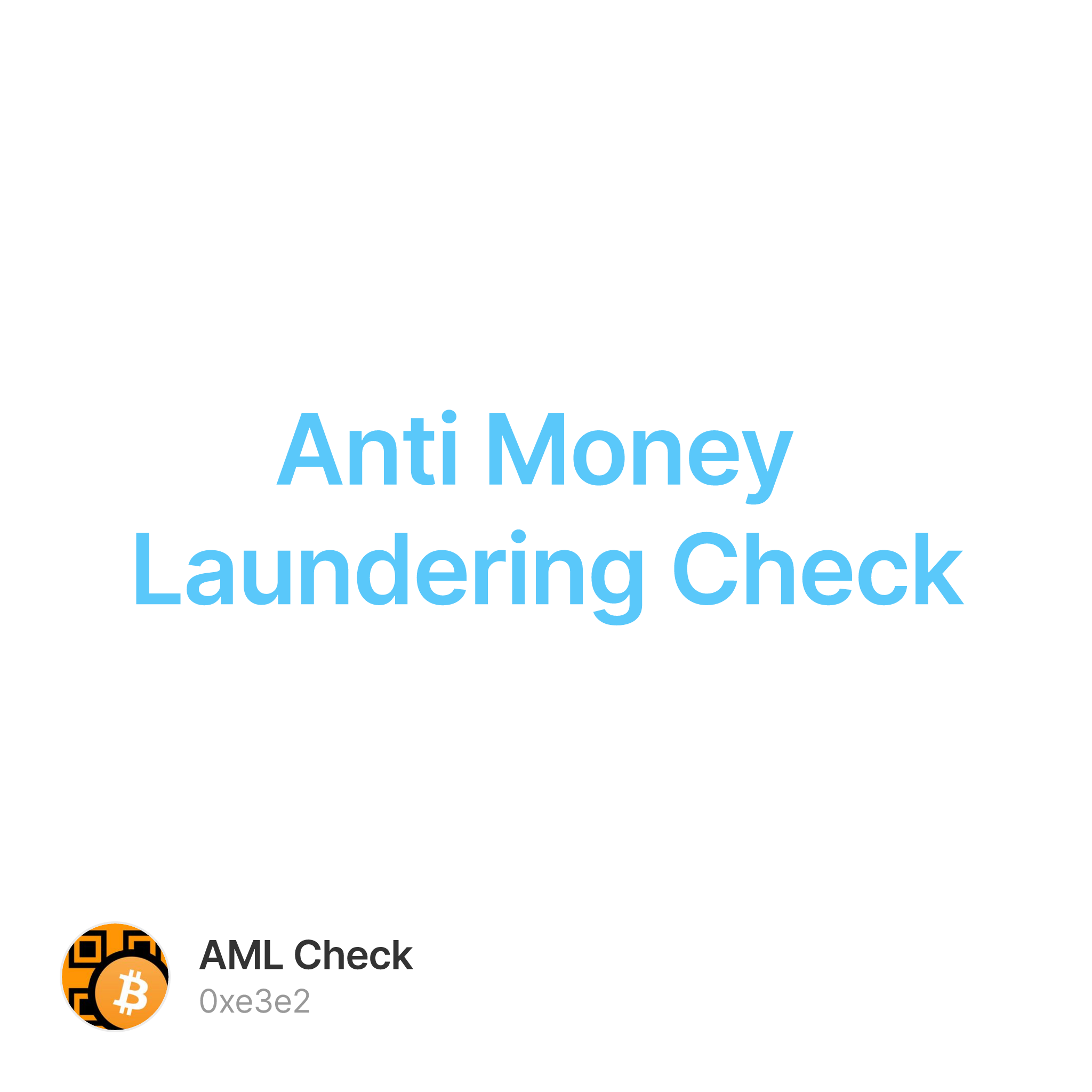
Anti money laundering check (AML) check is a process used by businesses and organizations to verify the identity of their customers and assess their risk of involvement in money laundering or other financial crimes. AML checks typically involve collecting information about the customer, such as their name, address, date of birth, and occupation, and then verifying this information against public records and databases.
An anti money laundering check are required by law in many countries, and they are an important part of preventing money laundering and other financial crimes. They can help businesses to:
-
Comply with anti-money laundering regulations
-
Protect themselves from financial losses
-
Mitigate their risk of reputational damage
There are a number of different AML checks available, and the type of check that is used will depend on the specific risk profile of the customer. Some common types of AML checks include:
-
Know Your Customer (KYC) checks: These checks are designed to verify the identity of the customer and to obtain information about their background and financial activities.
-
Sanctions screening: These checks are used to identify customers who are subject to sanctions imposed by governments or international organizations.
-
PEP screening: These checks are used to identify customers who are politically exposed persons (PEPs).
-
Transaction monitoring: This is a process of tracking and analyzing transactions to identify suspicious activity.
-
Suspicious activity reporting: Businesses and organizations are required to report suspicious activity to the relevant authorities.
An anti money laundering check can be a complex and time-consuming process, but they are an important part of preventing money laundering and other financial crimes. By conducting AML checks, businesses can help to protect themselves and their customers from these risks.
Here are some additional things to keep in mind about AML checks:
-
The frequency of AML checks will vary depending on the risk profile of the customer.
-
AML checks should be conducted on all new customers, as well as on existing customers who pose a higher risk of money laundering.
-
AML checks should be conducted in a timely manner, and any suspicious activity should be reported to the relevant authorities.
If you are a business or organization that is required to conduct AML checks, it is important to use a reputable AML provider. There are a number of different AML providers available, and the best provider for you will depend on your specific needs.
I hope this helps! Let me know if you have any other questions.
